Our events are free and normally open to the public, and operate on a first come first served basis unless specified otherwise.
The majority of our events are recorded and videos published as podcasts. Past events marked with a (P) or (V) mean a podcast (audio recording) or a video recording is available on each individual event page. Please be aware that by attending our events you may be visible in the audience in photos, and if you ask any questions these are likely to feature in our recordings.
If you have any queries about our public events get in touch here. Join our mailing list for event reminders or follow us on Facebook and Twitter.
Upcoming events
Revisiting the Vietnam War Fifty Years after the Fall of Saigon
Tuesday 21 January, 4pm - 5:15pm
In this talk, Peter Zinoman (University of California, Berkeley) examines the western-language historiography of the Vietnam War, including the shifting political dynamics of the field and the evolution over time of contrasting schools of interpretation. Special attention will be paid to the role of area studies scholarship and Vietnamese language competency in the development of the field.
Decentralisation, Healthcare Privatisation, and Women's Health: The Indonesia-Philippines Comparison
Wednesday 29 January, 12pm - 1:15pm
How do decentralised government and private healthcare options shape women’s preferences regarding maternal healthcare and desire to use it? Through a comparison in take-up rates of prenatal care in Indonesia and the Philippines between 1997 and 2017, Prof Sarah Shair-Rosenfield (University of York) traces the potential for decentralisation to “close the gap” between traditionally strong urban and traditionally weak rural care provision and access. However, in the earliest stages of decentralisation, widespread healthcare privatisation played a key substitutive role in urban areas, which offset improved local public provision in rural areas.
Book Launch—State Building in Cold War Asia: Comrades and Competitors on the Sino-Vietnamese Border
Wednesday 5 February, 5pm - 6:30pm
Departing from conventional studies of border hostility in inter-Asian relations, Yin Qingfei explores how two revolutionary states – China and Vietnam – each pursued policies that echoed the other and collaborated in extending their authority to the borderlands from 1949 to 1975. Weaving together international, national, and transnational-local histories, the speaker presents a new approach to the highly volatile Sino-Vietnamese relations during the Cold War, centering on the two modernising revolutionary powers' competitive and collaborative state building on the borderlands and local responses to it.
This event is co-hosted with the Department of International History
The Will to Govern: Territorial Redivision and the Politics of Sovereignty in West Papua
Wednesday 12 February, 3pm - 4:15pm
After the 1998 Indonesia’s democratic reforms, the central government embarked on political projects of decentralization to shift the centralistic character of the Indonesian state. These decentralization reforms include the granting special autonomy to secessionist regions, including the easternmost and marginal region of West Papua. Looking specifically at the provincial level pemekaran, this presentation by Veronika KUSUMARYATI (University of Wisconsin-Madison) wishes to contribute to the conversation on the legal and political meanings of indigenous self-government.
Battles for Pluralism: Indonesia, Malaysia, and the Great Democratic Unknown
Wednesday 19 February, 5pm - 6:30pm
In a pattern oft-repeated across world history, the culturally diverse nations of Indonesia and Malaysia have moved in recent decades from strict hegemonic rule to open political competition. Out of one, many. Whenever and wherever such transitions occur, most typically with the end of an empire or the demise of a dictatorship, it is highly uncertain whether democracy and diversity can flourish – either alone or in tandem. In Battles for Pluralism, Prof Dan Slater (University of Michigan) historically traces these parallel decades-long transitions in two of the world’s only Muslim-majority democracies.
Bud Dajo, 1906 – Recovering the Story of an American Atrocity in the Southern Philippines
Wednesday 5 March, 12pm - 1:15pm
In March of 1906, US military forces killed 1000 men, women and children during an assault on a Moro stronghold at Bud Dajo in the southern Philippines. The Massacre of Bud Dajo rightfully belongs in the same category of historical atrocities as Wounded Knee in 1890 or the better-known My Lai Massacre of 1968. Yet while Wounded Knee and My Lai have become emblematic of American atrocities during the ‘Indian Wars’ and Vietnam War, respectively, Bud Dajo has faded into obscurity. Prof Kim A. Wagner (Queen Mary, University of London) discusses the massacre, examines the evidence and addresses the methodological challenges of recovering silenced voices and perspectives of colonial violence.
The Hydro-Crypto Nexus in Laos: Paradoxes and Perils of the Demand for Decarbonization
Wednesday 12 March, 12pm - 1:15pm
Lao People’s Democratic Republic (LPDR) has often been positioned as a central provider of regional hydroelectric power to neighboring Southeast Asian countries and China. In 2021, the Lao government introduced a state-sponsored industrial policy to foster the conversion of hydropower dam sites and the sale of hydro-electricity into a revenue-generating domestic crypto-mining sector. In this talk, Pon Souvannaseng (Bentley University) will discuss how the hydro-crypto plan came to be and the major pitfalls, tradeoffs, and unintended environmental, social and economic consequences that have accompanied the Lao state’s venture into building a hydro-crypto nexus.
Do Post-Conflict Referendums Promote Peace and Democracy? East Timor and Beyond
Wednesday 19 March, 12pm - 1:15pm
In this seminar, Dr. Kentaro Fujikawa (Nagoya University) explores the various positive, negative, and often unexpected impacts post-conflict referendums have on conflict resolution and peacebuilding based on his new book, Post-Conflict Referendums and Peace Processes: Pathways to Peace and Democracy? (Routledge 2025).
Past events
Understanding and Challenging the Exploitation of Filipina Domestic Workers in the UK: A Roundtable Discussion
Wednesday 4 December, 5pm - 7pm
As a hub for Southeast Asia in the UK and Europe, SEAC is hosting a roundtable discussion bringing together activist, legal, and academic expertise to discuss the exploitation of Filipina domestic workers in the UK. Join us to hear from local NGOs and community organisations about the lived experiences of Filipina domestic workers and the legal challenges constraining efforts to address their ordeals of human trafficking and exploitation and to advance their claims to asylum in the UK. The discussion will shed light on the significant contributions of Filipina migrants in the UK, who represent a large part of the UK’s domestic workforce. The discussion will further explore the critical work that is being done to expand and protect domestic worker’s rights in the UK.
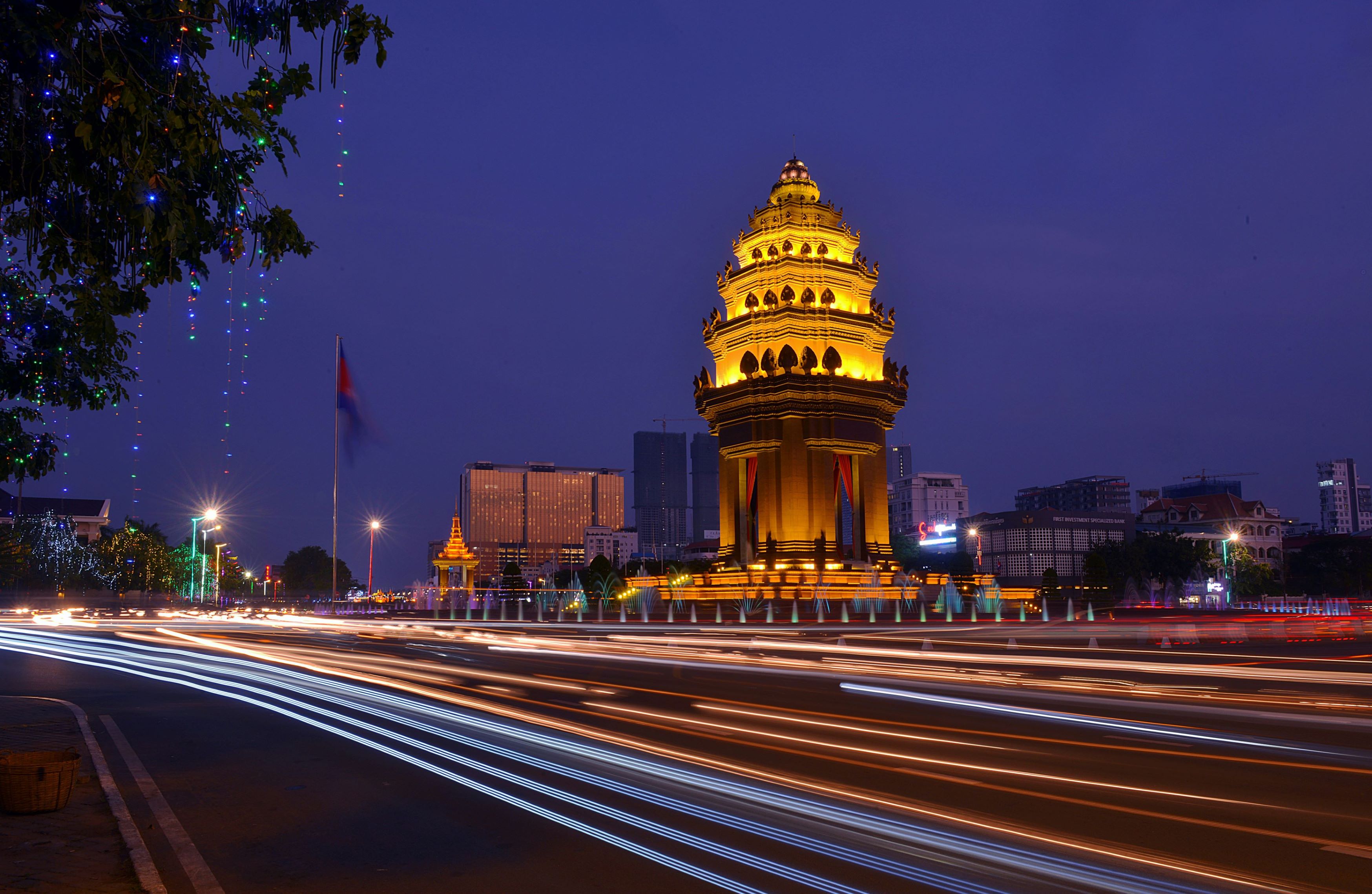
The Politics of Coercion: State and Regime Making in Cambodia
Wednesday 27 November, 12pm - 1:15pm
In The Politics of Coercion: State and Regime Making in Cambodia (Cornell University Press, 2024), Dr Neil Loughlin explains the persistence of Cambodia's authoritarian regime for more than four decades. This newly published book provides a historically grounded investigation of the country's ruling coalition: political elites, many drawn from within the state's coercive apparatus, who, in coordination with state-dependent tycoons, have come to control Cambodia's politics and its economy. Loughlin presents new empirical data foregrounding the coercive underpinnings of the modern Cambodian state and its party, the Cambodian People's Party (CPP). The focus on coercion reflects the regime's conflict and postconflict evolution and extractive political economy as the ruling coalition failed to channel popular interests through its political institutions, thus resorting either to low-intensity forms of coercion such as intimidation and surveillance or to high-intensity coercion such as violent crackdowns and extrajudicial killings.
Inter Asia Seminar Series: Interrogating Asia’s Urban Futures
Thursday 21 November, 12pm-1:15pm
Asia is renowned for its rapid urbanization, yet this growth has unfolded unevenly across the region, affecting places and people in variegated ways. An urgent question facing the region is how to plan and govern cities in the context of climate emergencies and whether the current pace of urbanization can continue without compromising the well-being of urban populations. Within this context, the panel brings together diverse perspectives to discuss the future of Asian cities, presenting some of their key arguments rooted in their latest research.
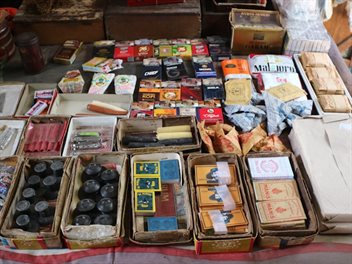
Kretek Capitalism: Making, Marketing, and Consuming Clove Cigarettes in Indonesia
Wednesday 20 November, 12pm-1:15pm
Indonesia is the world’s second-largest cigarette market: two out of three men smoke, and clove-laced tobacco cigarettes called kretek make up 95 percent of the market. Each year, more than 250,000 Indonesians die of tobacco-related diseases. To account for the staggering success of this lethal industry, Kretek Capitalism examines how kretek manufacturers have adopted global tobacco technologies and enlisted Indonesians to labor on their behalf in fields and factories, at retail outlets and social gatherings, and online. Dr. Marina Welker's (Cornell University) research charts how Sampoerna, a Philip Morris subsidiary, uses contracts, competitions, and gender, age, and class hierarchies to extract labor from workers, influencers, artists, students, retailers, and consumers. Critically engaging nationalist claims about the commodity’s cultural heritage and the jobs it supports, she shows how global capitalism has transformed both kretek and the labor required to make and promote it.
Understanding Vietnamese History with a View from the Sea
Wednesday 13 November, 12pm-1:15pm
Vietnamese history has been essentialised in four words: Bac cu, nam tien (resist to the north, expand to the south). In this narrative, all other elements – ideologies, economy and society were weaved around this central drive, as the key to understand Vietnamese history. In this talk Professor Li Tana (Australian National University) will discuss this theme with her new book A Maritime Vietnam: From earliest time to the 19th century (Cambridge University Press, 2024). It is a borderless history rather than a history of states. Even so, the journey through the book’s 10 chapters shows repeatedly that it is only when viewed against this expansive background that some of the more important, sometimes even determinative, features of Vietnam’s past can be properly understood.
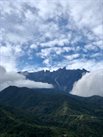
Reclaiming Gendered Spaces Before the Mountain God: Resistance and Resilience of Remote Women Amid Urban Transformation in the District of Kundasang, Sabah
Monday 11 November, 12pm-1:15pm
This seminar with Dr. Vilashini Somiah (SEAC Visiting Fellow, Universiti Malaya) explores post-COVID-19 research on Indigenous and migrant women in Kundasang, a district in Sabah, Malaysia. Central to the study is Mount Kinabalu, a spiritual entity for the local community. The research is based in two villages: Bundu Tuhan, a Catholic Indigenous community, and Cinta Mata, where Muslim women have settled through marriage. These women reclaim gendered spaces amid gentrification, Islamic movements, and rapid urban transformation. Despite traditional expectations as wives and mothers, the pandemic has pushed many into new roles as breadwinners. The study, grounded in gender and identity theories, highlights their resilience and evolving responsibilities, shedding light on their crucial role as custodians and gatekeepers of their communities during economic recovery and urban change.
Co-hosted with the Department of Anthropology.
London Burma Reading Group
Thursday 31 October, 6:30-8:00pm
The London Burma Reading Group invites you to an upcoming networking social event at the London School of Economics (LSE) on October 31st. This will be an event to facilitate exchange among those studying or working on Myanmar, or those whose research has implications for Myanmar. We hope it will be an event of exchange and conversations among students, academics, researchers, and those more generally interested in the country. Though the event will be at the LSE, we strongly encourage those from other universities and those beyond academia to join us.
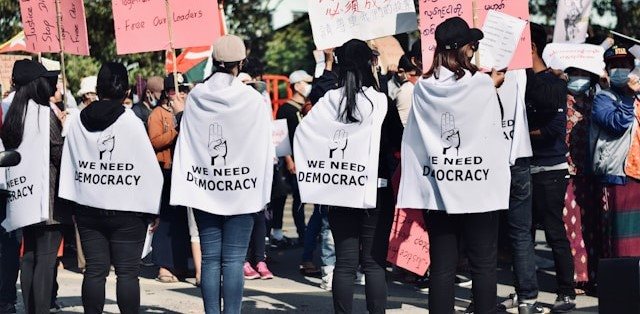
Coups and Crises in Myanmar and Thailand: Implications for Southeast Asia/ASEAN and Beyond
Wednesday 30 October, 12pm-1:15pm
Myanmar’s military takeover in February 2021 and Thailand’s last two coups in September 2006 and May 2014 have dramatically undermined democratisation in both countries, significantly accounting for the democratic “rollback” around the world. As a first in Southeast Asia, Myanmar’s coup succeeded in its execution but is failing in its implementation and consolidation. The ensuing civil war there – what local anti-coup insurgents deem a ‘revolution’ – is tipping in favour of a resistance coalition comprising the inchoate civilian-led National Unity Government, Ethnic Armed Organisations and ubiquitous squads of People’s Defence Force. That Myanmar’s future is up for grabs should behove Asean member states and the wider international community to help broker dialogue and negotiations to reimagine and reconstitute a viable new country. While Thailand’s twin coups ended up with new constitutions and general elections, conservative forces have held sway. Thailand has entered an unmistakeable endgame that pivots around the military’s and monarchy’s roles in a contested constitutional order with rising disenchantments and demands from below for reform and modernisation. This seminar with speaker Professor Thitinan Pongsudhirak (Chulalongkom University), will aim to tease out issues and implications from what’s happening in both Myanmar and Thailand for Asean and the Southeast Asia neighbourhood on the dynamic spectrum between autocracy and democracy in view of the geostrategic conflict between the United States and China.
‘Book Talk - Contesting Indonesia: Islamist, Separatist and Communal Violence since 1945’
Wednesday 23 October, 12:30pm-1:45pm
In her new book Professor Kirsten E. Schulze (LSE) examines Islamist, separatist and communal violence across Indonesian history since 1945 through six case studies. She asks why this violence only erupted in some areas of Indonesia despite the shared history. Looking at where the violence is located not just in a geographic sense but above all in a conceptual sense, she explores Islamist, separatist, and communal violence in relation to the notion of the national imaginary as well as in relation to the concept of belonging.

The Ripple Effect: China’s Complex Presence in Southeast Asia (V)
Wednesday 16 October, 12pm-1:15pm
Many studies of China's relations with and influence on Southeast Asia tend to focus on how Beijing has used its power asymmetry to achieve regional influence. Yet, scholars and pundits often fail to appreciate the complexity of the contemporary Chinese state and society, and just how fragmented, decentralized, and internationalized China is today. In The Ripple Effect, Dr. Enze Han (University of Hong Kong) argues that a focus on the Chinese state alone is not sufficient for a comprehensive understanding of China's influence in Southeast Asia. Instead, we must look beyond the Chinese state, to non-state actors from China, such as private businesses and Chinese migrants. These actors affect people's perception of China in a variety of ways, and they often have wide-ranging as well as long-lasting effects on bilateral relations. Looking beyond the Chinese state's intentional influence reveals many situations that result in unanticipated changes in Southeast Asia.

Colonial Debris: The Struggle For Land and Citizenship in Indonesia
Wednesday 9 October, 5pm-7pm
Indonesian filmmakers explore why their country has so many land conflicts. As they film the protests of communities against palm oil companies and real estate developers taking their land, they find that the roots of these conflicts go back to Indonesia’s colonial past. When in the 19th century the Dutch colonial rulers claimed ownership over most of Indonesia’s land, they weakened the land rights of ordinary Indonesians. This heritage lingers, as in contemporary Indonesia the land ownership of ordinary Indonesians remains restricted. With the police siding with companies, the many demonstrations that communities organize seem to have little effect. Yet after long struggles some communities manage to recover their land, showing the viability of an alternative path to economic development. After the screening there will be a Q&A with Professor Ward Berenschot (University of Amsterdam), a researcher at KITLV and University of Amsterdam and involved in the making of this documentary.
The Crypto-Colonial Heritage of Modern Thailand (V)
Wednesday 9 October, 11:30am-1pm
Professor Michael Herzfeld (Harvard University) will discuss the status of Thailand as an example of “crypto-colonialism” – a phenomenon in which declarations of independence and of high civilization conceal elite arrangements with colonial powers whereby the alleged freedom turns out to be highly conditional, and in which the colonial powers’ “civilizational discourse” reproduces locally the humiliation of the nation-state by the colonial powers. Using examples drawn from ethnographic as well as historical sources, Herzfeld will also place Thailand’s current dilemmas in a global context, with specific reference to the political evolution of Greece and Nepal.
Co-hosted with the Department of Anthropology
A Sunny Place For Shady People? Singapore As A Conduit For Illicit Financial Flows and Cross-Border Crime
Wednesday 2 October, 12:00pm-1:15pm
Like Switzerland, Singapore is a country ranked among the least corrupt in the world that is simultaneously accused of facilitating cross-border crime and tax evasion on an industrial scale. The 2022 Corruption Perceptions Index of Transparency International (TI) ranked Singapore the fifth cleanest country worldwide. Nonetheless, Tax Justice Network (TJN) ranked Singapore the ninth most egregious corporate tax haven in the world and the third most secretive. This presentation by Dr. Joe Studwell (UK's Overseas Development Institute) considers the history, current political settlement and regional role of Singapore as a conduit for cross-border flows of dirty money as well as international pressures for reform.
Roundtable: Prospects for Peace in Myanmar
Wednesday 12 June, 12:00pm-1:15pm
This roundtable event brings together academic, policymaking and activist expertise to discuss the prospects for peace in Myanmar. At this crucial juncture in Myanmar’s political history, the speakers reflect on the dynamics that have led up to this major point of crisis and transition, and the prospects for moving beyond violence and war to a new future.
PhD Student Workshop
Thursday 6 June, 10:00am-3:00pm
SEAC is hosting a workshop for PhD students across the UK working on Southeast Asia. The workshop is designed to allow UK university-based research students working on the region to present their work among their peers for feedback and to provide a broader opportunity for sharing ideas and information related to ongoing doctoral research focused on Southeast Asia.
We are unable to provide financial support for travel or accommodation in connection with participation in the workshop, but we hope that provision of the venue and other amenities for the workshop will enable and encourage participation from among PhD students working on Southeast Asia across the UK.
Inter-Asia Seminar Series: Youth In Search Of A Future: Living Precariously In Compounded Crisis
Thursday 30 May, 12:00pm-1:30pm
Youths across Asia face unprecedented challenges amidst compounded crises of climate change, geopolitical conflict, and socioeconomic inequality. This roundtable discussion delves into the precarious realities shaping their lives while also searching for manifestations of agency and signs of hope. Panelists will explore how youths in East Asia, South Asia, and Southeast Asia are reconceptualizing their social roles and political identities as they envision a future marked by great uncertainty.
Southeast Asia Forum 2024: The Challenges of Sustainable Growth in Southeast Asia
Thursday 23 May, 9:00am-5:15pm
Southeast Asia is a region well-known for its economic dynamism, high growth rates, and increasing prosperity. But today the region faces unprecedented challenges amidst volatility in world markets, global climate crisis, and rising geopolitical tensions. This year’s Southeast Asia Forum features four experts on the economies of the region to discuss these challenges.

Becoming Jihadis: Radicalization and Commitment in Southeast Asia
Wednesday 15 May, 2:00pm-3:15pm
Why does someone join an extremist group? What are the pathways via which individuals join such groups? How does one show commitment to an extremist group? Why does someone participate in acts of terrorism? Drawing on 175 interviews with current and former members of Islamist extremist groups in Indonesia and the Philippines, Becoming Jihadis: Radicalization and Commitment in Southeast Asia answers these questions by exploring the socio-emotional underpinnings of joining an extremist group. This book argues that social ties play a critical role at every juncture in the joining process, from initial engagement to commitment to participation in jihad experiences, paramilitary training and terrorism. It unpacks the process by which members build a sense of community, connection, solidarity and brotherhood; how they come to trust and love one another; and how ideology functions as a binding agent, not a cause. Becoming Jihadis draws its conclusions from broad patterns data based on nearly a decade of iterated interviews with current and former members of Islamist extremist groups between 2010 and 2019 as well as partial life histories detailing the journeys of specific men and women from joining to commitment to participation in high risk activism.
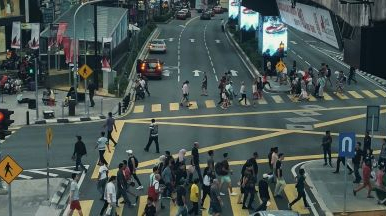
Re-globalization, Geopolitics and Southeast Asia
Monday 29 April, 12:00pm-1:15pm
During the Cold War, the collision of geopolitics, ideological competition and nationalism were especially traumatic in Southeast Asia. Yet the region was able to carve out space for itself and over several decades was able to effectively keep the region’s security free from geopolitical wrangling. This was due to the efficacy of ASEAN and its offshoots, the grand bargain struck between the US and China and globalization. Each of those circumstances that previously helped to stabilize Southeast Asia has changed dramatically. Great power competition has returned with remarkable speed. Globalization is being reconstructed due to the vulnerabilities revealed by the pandemic, the return of geopolitics and the revival of economic nationalism. ASEAN faces significant headwinds as it struggles to sustain the interests of its members and its regional influence. This seminar examines these dynamics and in particular the interplay of geopolitics and the reconstitution of globalization, to assess the extent to which Southeast Asia will be able to retain the stability it has come to enjoy.
Inter-Asia Seminar Series: Cold War and Asia Modernity
Wednesday 27 March, 12:00pm - 1:15pm
While many today use Cold War 2.0 to refer to the standoff between U.S. and China, it is worth remembering that the first Cold War never ended in Asia, as evidenced by the political situation on the Korean Peninsula and that surrounding the Taiwan Strait. How has Cold War figured into the (controversial) modernisation process of East and Southeast Asia as well as the various (critical) imaginaries of modernity across the regions? As discussions of decolonisation often predicate on the dichotomy of global North vs. global South, how should scholars of Asia position themselves in their conscious effort to reconfigure knowledge production?
Queer Indonesian Muslims: Navigating Gender, Sexuality, and Faith
Wednesday 13 March, 12:00pm - 1:15pm
Join us for an enlightening seminar with Dr Diego Garcia (University of Nottingham), as he explores his new book, “Gender, Sexuality and Islam in Contemporary Indonesia: Queer Muslims and their Allies.” This seminar will offer a unique insight into the lives and experiences of queer Muslims in Indonesia, the world’s largest Muslim country. Dr Garcia’s book, based on extensive ethnographic research, sheds light on how queer Indonesian Muslims navigate their gender, sexual, and religious identities. The talk will explore the emergence of queer religious geographies, the making of queer Muslim subject positions at the intersection of education, family, peers and media, and the invaluable support of allies within the framework of progressive Islam.
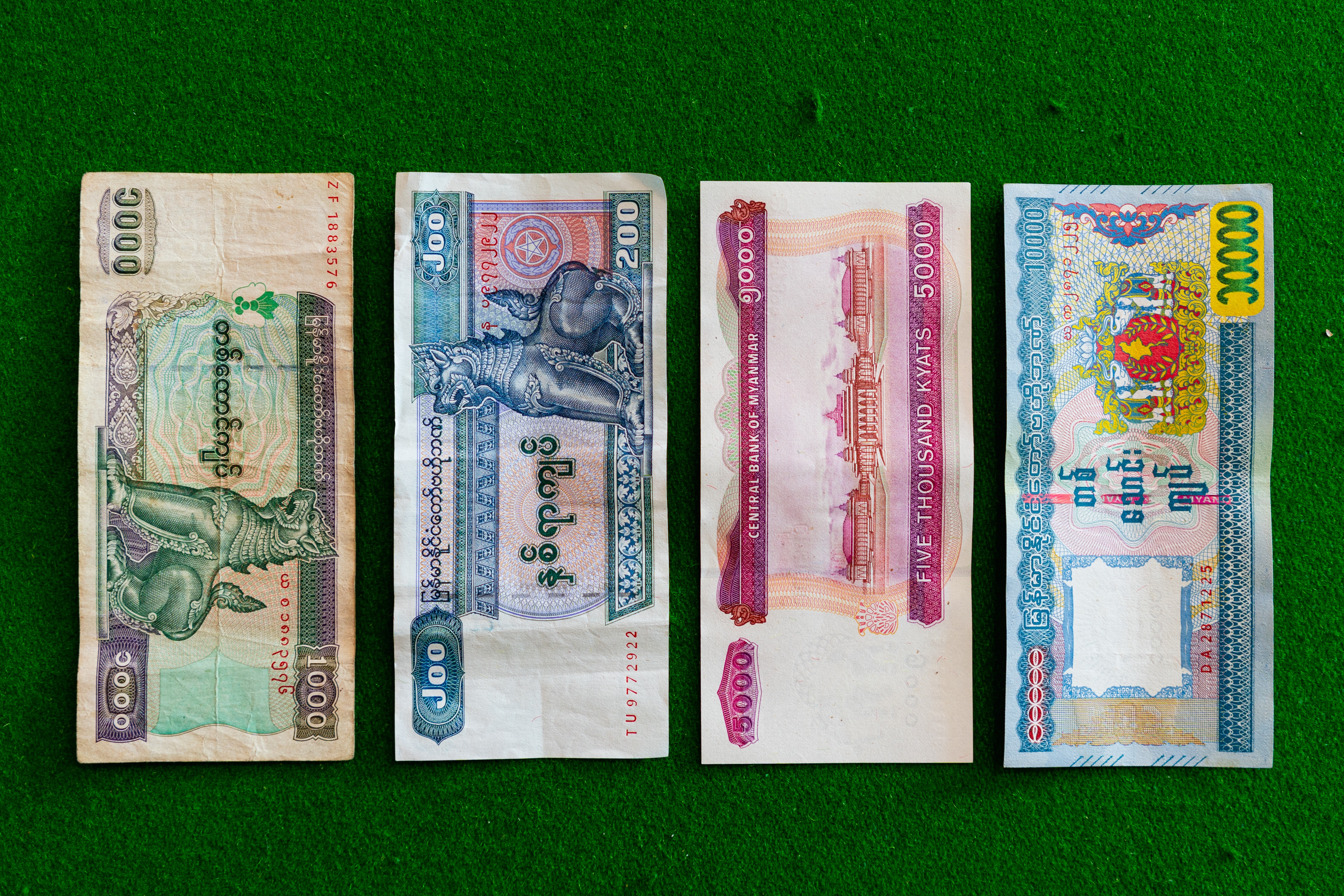
South by Southeast? Burma/Myanmar Through Indonesian and Indian Ocean Lenses, Darkly
Wednesday 6 March, 12:00pm - 1:15pm
In 1960, the LSE-trained anthropologist Edmund Leach published an oft-cited article titled “The Frontiers of ‘Burma’” in which he raised fundamental questions about the country then known as Burma and today known as Myanmar. More than sixty years later, this seminar is intended to do the same in the context of the country’s inclusion in the activities of both the South Asia Centre and the Southeast Asia Centre at the LSE. The lecture begins by spotlighting both the striking commonalities and the striking divergences in the modern historical trajectories of Burma/Myanmar, on the one hand, and the Netherlands East Indies/Indonesia, on the other. The lecture then zooms out to situate Burma/Myanmar within the broader historical context of the Indian Ocean. The point is to show how both Southeast Asian and South Asian perspectives help to illuminate the country’s political past, its current political predicament, and the prospects for political change in the future.
This event is co-hosted with the South Asia Centre.
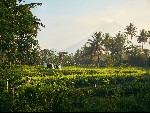
The Politics of Socialist Internationalism in Decolonising Southeast Asia
Wednesday 28 February, 12:00pm - 1:15pm
Studies of socialism in Southeast Asia in the 1950s and 1960s have tended to focus on key intellectuals and communist parties, or socialist internationalism in the Chinese and Soviet orbit. This talk forms part of a larger project on non-communist socialism, its relationship to the broader left, and its transnational dimensions which I will be introducing here. The latter half of the talk focuses on the conditions by which socialism manifested in the political domain. In the 1950s and 1960s socialist fronts emerged in the Malay peninsula and in Singapore. They followed in the footsteps of the Burma-based Asian Socialist Conference and committed to the Bandung spirit, resisting Western military intervention in the region and pledging their support for liberation movements around the world. Yet the atmosphere of the Global Cold War and growing authoritarianism in the early 1960s severely strained the ability of the left to function effectively or to maintain a non-aligned stance. Meanwhile, the PAP harnessed ‘democratic socialism’ as a tool to win allies around the world, while suppressing the ‘hard’ left at home. In viewing the explosive history of the late 1950s and 1960s through transnational socialist networks and anti-colonial politics, this talk provides a fresh perspective on this pivotal point of the Cold War and decolonisation in the region.
Roundtable Discussion on the Indonesian Elections: Process, Outcome, Implications
Wednesday 21 February, 5:00pm - 6:30pm
As the two-term presidency of Joko Widodo (‘Jokowi’) draws to a close, the 2024 parliamentary and presidential elections promise to set the stage for a new phase in Indonesian political life. Against this backdrop, three experts on Indonesian politics will discuss the election campaign, the results, and the implications for Indonesia’s future: Ben Bland, Director of the Asia-Pacific program at Chatham House, Sofie Syarief, veteran Indonesian television journalist, PhD student in Media, Communications, and Cultural Studies at Goldsmiths, University of London, and Sarah Shair-Rosenfield, Professor of Politics at the University of York.
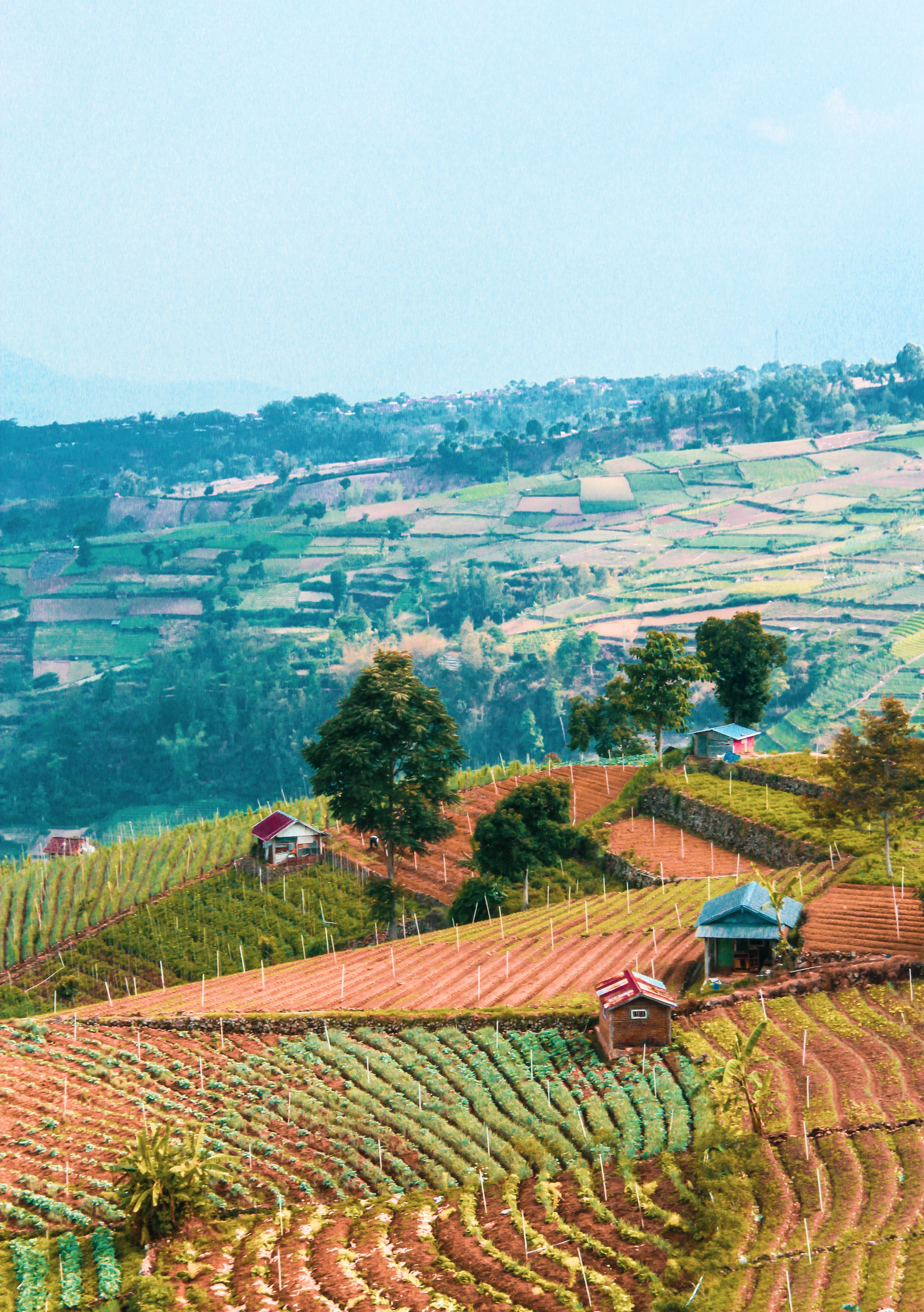
Transforming Rural Southeast Asia
Wednesday 14 February, 6:30pm - 8:00pm
Globally the proportion of people who live in rural areas is declining, yet the net number continues to increase: from 3 billion in 1990 to 3.4 billion in 2020. In Southeast Asia, 30 million more people live and work in rural areas today than they did in 1990. Yet rural people are largely absent from public and academic discourse, out of sight and out of mind. One reason for the neglect is the stubbornly persistent transition narrative which suggests that rural populations are anachronistic: they belong to the past, and sooner or later they will move to cities and join the march of progress. In this talk, Prof Tania Li will outline the main powers and processes at work in transforming rural Southeast Asia and draw on my ethnographic research in Indonesia to illustrate how rural people navigate their ever-changing terrain.
This event is co-hosted with the Department of Anthropology and the Department of Geography and Environment.
Rama X: The Thai Monarchy under King Vajiralongkorn
Monday 12 February, 12:00pm - 1:15pm
In the twilight years of King Bhumibol Adulyadej (1946–2016), changes to monarchic power were already set in motion. Having been at the centre of political gravity, Bhumibol left a vacuum of power when he died. Vajiralongkorn, enthroned in 2016, filled the vacuum with his desire to further augment the monarchic power despite his lack of moral authority and charisma. This seminar focuses on Vajiralongkorn’s attempt to strengthen his position of power by employing a different method from the one used by his father, Bhumibol.
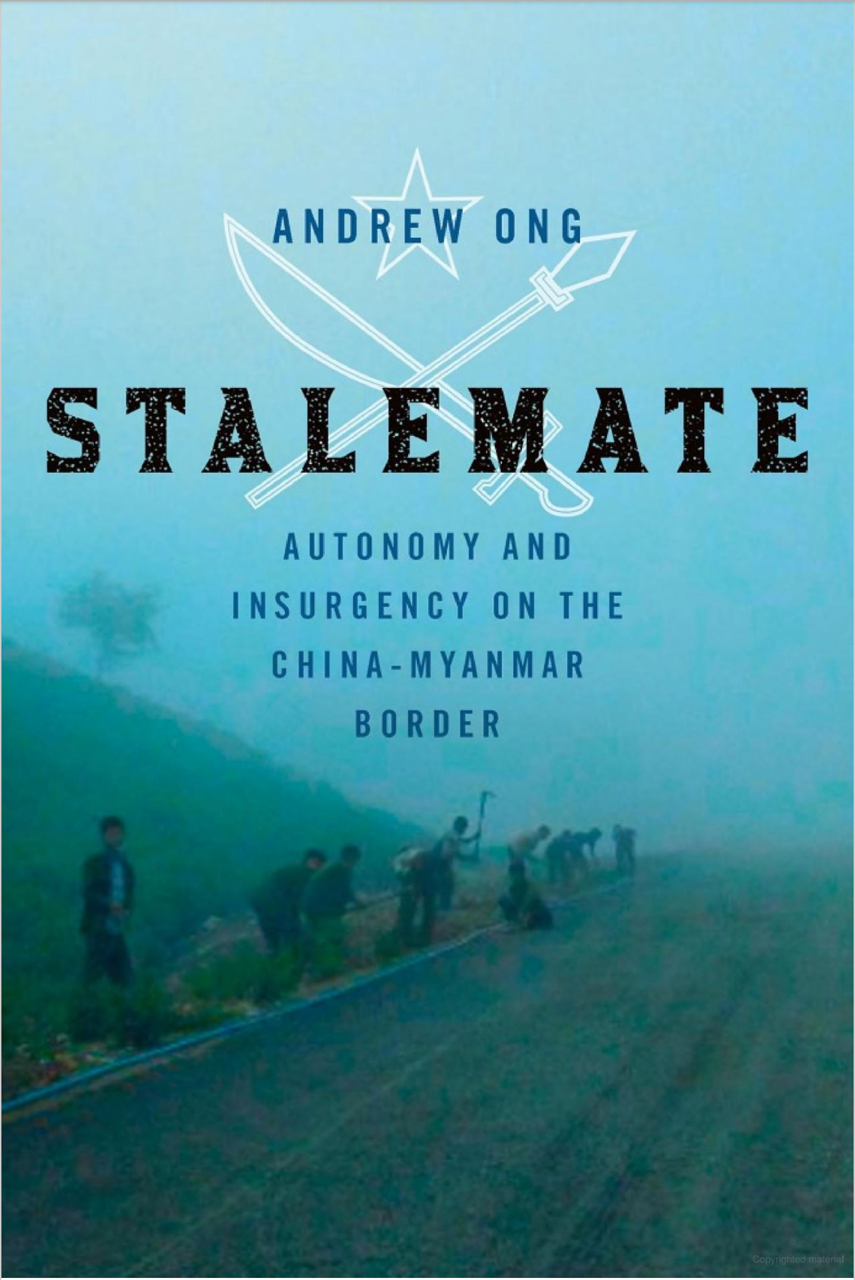
Insurgent Autonomy: The United Wa State Army and Region-making in Highland Myanmar
Wednesday 7 February, 12:00pm - 1:15pm
Highland autonomy is no longer about the keeping of lowland states at bay, or resisting their encroachment into the hills. It is instead a relational autonomy, maintained through the management of political ties and flows of capital and people into the hills. In the highland Wa Region of Myanmar, on the Chinese border, the 30,000-strong United Wa State Army has engaged in this careful dance for over 30 years, maintaining its autonomy from Myanmar and China. In this talk, Aexamine the process of region-making in Wa Region: how its political visions are incongruous with the language of the modern state-form, how it makes and breaks intermittent ties with neighbouring states, and how it regulates the movement of people and capital in and through its region to ensure survival. I make some simple reflections on what the UWSA’s differing vision of autonomy might mean for Myanmar in the post-coup era.
Development in Spirit: Religious Transformation and Everyday Politics in Vietnam's Highlands
Wednesday 31 January, 12:00pm - 1:15pm
Following Dr Seb Rumsby's recently published monograph, this panel will discuss and debate the contributions of Development in Spirit to understanding the possibilities for 'alternative routes to development' or empowerment amidst profound socio-economic transformations in contemporary rural Southeast Asia. Seb will be joined by Professor Catherine Allerton and Dr Hans Steinmuller to explore the marketisation of upland livelihoods, the under-appreciated role of religion in everyday politics and the influence of neoliberal governance in everyday lives.
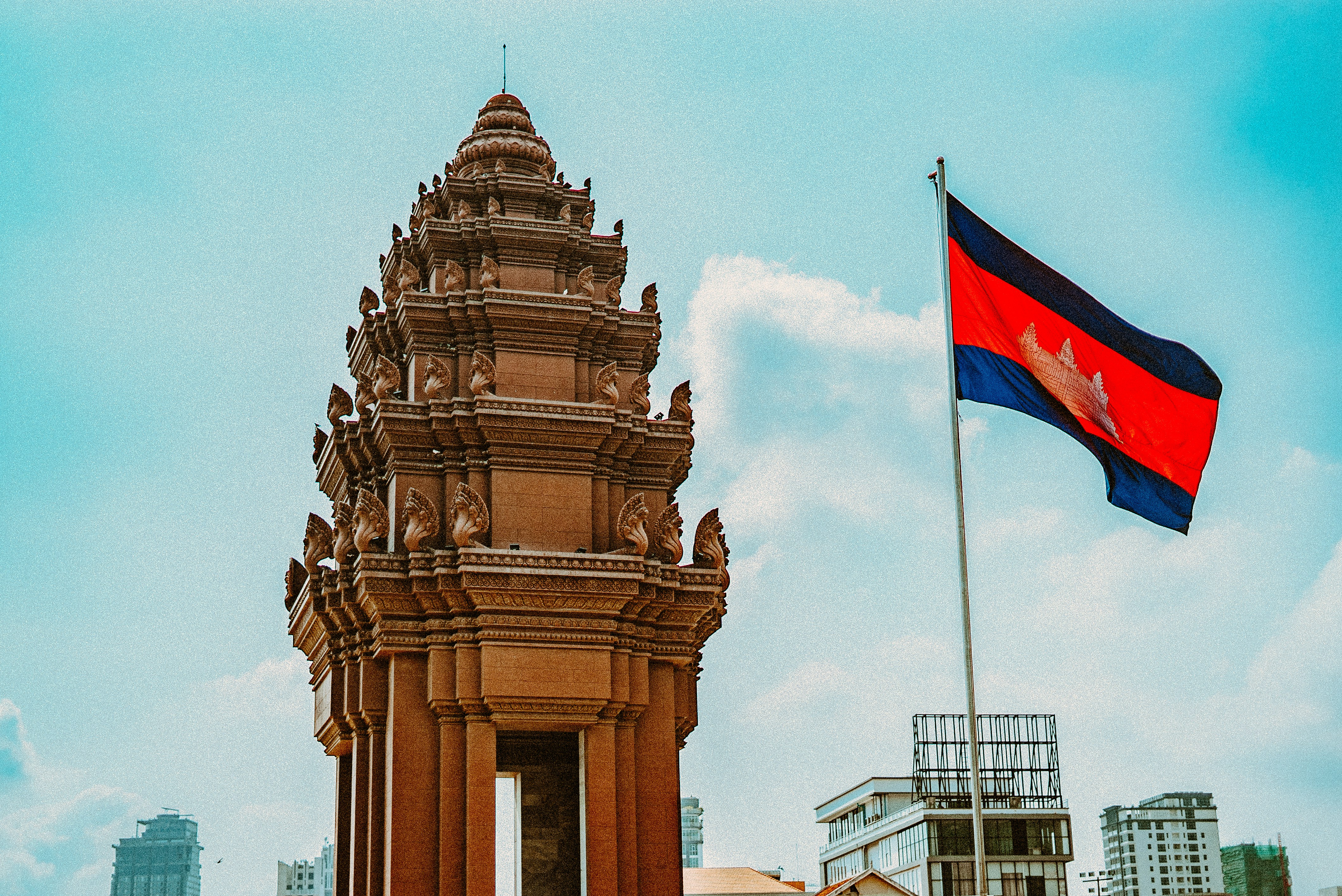
Kissinger’s Air War: US and South Vietnamese Bombing of Cambodian Civilians, 1969-1973
Monday 29 January, 12:00pm - 1:15pm
The passing of Henry Kissinger in November 2023 precipitated an outpouring of public commentary on bombing in Cambodia in the early 1970s while he was US National Security Advisor and then Secretary of State. Public interest in bombing campaigns has been further stimulated by the recent avalanche of coverage of the effects of airstrikes by the aerial warfare branch of the Israeli Defense Forces. In both cases, much concern has centred on the resulting deaths of civilians and the extent to which these are evidence of war crimes or worse. There has also, at least sometimes, been debate about what exactly happened in specific instances and questioning about the credibility of reported death tolls. Since 2017, Dr Steve Heder has been conducting extensive new field research on the Cambodia case. Unexpectedly, the results bring into question widely held beliefs about the air war in Cambodia, while also suggesting that comparison with the Gaza case highlights how much more intensely horrific war crimes are being committed there, even while being documented in real time.
The start-up state? Strategic economic development in digital tech in Singapore
Wednesday 24 January, 12:30pm - 1:45pm
In this SEAC Seminar, Prof Neil Lee will present the research and findings of his SEAC Research Fund project. The project aimed to understand the development of Singapore’s digital tech sector. Between 2010 – 2023 the sector grew rapidly, with major firms developing from the country. The seminar will discuss the extent to which policy was driving this, relative to fundamentals of location, business taxation and so on, and draw out lessons for economic policymakers in other countries.
A Forward-Looking Conversation with Thanathorn Juangroongruangkit on Thailand’s Past, Present, and Future
Monday 22 January, 2:15pm - 3:45pm
In the 2023 elections in Thailand, the newly formed Move Forward Party won a plurality of 151 parliamentary seats on a strongly anti-establishment campaign platform, but was thwarted from forming a government. Against this backdrop, the Saw Swee Hock Southeast Asia Centre at the LSE is hosting a conversation with Thanathorn Juangroongruangkit, the former leader of Move Forward’s original incarnation, the Future Forward Party. He will be speaking with Duncan McCargo of Nanyang Technological University (NTU) in Singapore and with Petra Alderman of the University of Birmingham, both of whom are specialists on Thai politics.
The Drama of Dictatorship: Martial Law and the Communist Parties of the Philippines
Wednesday 17 January, 12:00pm - 1:15pm
In September 1972, Ferdinand Marcos declared martial law and imposed military dictatorship on the Philippines. In his recently published book, The Drama of Dictatorship (Cornell University Press, 2023), and in this serminar, Joseph Scalice examines the complex events leading up to the declaration and traces the political developments and social context that made martial law possible. Uncovering the central role played by two rival Communist parties and rewriting the history of the elite opponents of Marcos, particularly Ninoy Aquino, revealing them to be forces who, like Marcos, were plotting against democracy.
The 2024 Presidential Elections in Indonesia: Do they Matter? (V)
Wednesday 6 December, 12:00pm - 1:15pm
In 2024, Indonesia will hold its fifth presidential elections since democratic reform began in 1998. For the last two years, candidates have been positioning themselves to replace outgoing President Joko Widodo, who is constitutionally barred from running again. Dr Marcus Mietzner (Australian National University) argued that the coalition likely to be built after the 2024 elections will be similar to previous ones - but that the political persona of the president still matters in determining the coalition's overall direction.
Some People Need Killing: A Memoir of Murder in the Philippines
Wednesday 29 November
Some People Need Killing is the title of Patricia Evangelista's meticulously reported and deeply human chronicle of Rodrigo Duterte's drug war. The discussion drew from Evangelista’s on-the-ground account of killings carried out by police and vigilantes. It considered the impact on survivors, the grammar of violence, and the human impulses to dominate and resist.
London Burma Reading Group
Thursday 23 November
The London Burma Reading Group hosted a networking social event, to facilitate exchange among those studying or working on Myanmar, or those whose research has implications for Myanmar. An event of exchange and conversations among students, academics, researchers, and those more generally interested in the country. Those from other universities and those beyond academia were strongly encouraged to join.
The Making of an Authoritarian Dynasty: From Hun Sen to Hun Manet in Cambodia (V)
Wednesday 22 November
Nearly forty years after Hun Sen first became Prime Minister in 1985, Cambodia’s long-time ruler has passed on power to his son Hun Manet, who assumed the premiership in August 2023. Against the backdrop of this much anticipated succession, a group of the UK’s leading scholars of Cambodia discussed the implications of this pattern of dynastic succession for political continuity and change in the country.
Consumer Socialism and Vietnam’s New Middle Classes (V)
Wednesday 15 November
Dr Arve Hansen (University of Oslo) approached the dramatic changes in consumption patterns in Vietnam over the past decades, combining a focus on everyday life and large-scale development processes. The talk takes as a starting point the recently published book Consumption and Vietnam’s New Middle Classes: Societal Transformations and Everyday Life (Palgrave, 2022).
China, Japan, and the United States and Infrastructure in Southeast Asia: The Geopolitics of Transportation and Telecommunications Development in the Philippines (V)
Wednesday 8 November
Over the past twenty years, increasing attention – and alarm – has been focused on Chinese assertiveness and aggression in the South China Sea and in the territorial waters of the Philippines in particular, provoking diplomatic and military responses from the Philippines and the United States and rendering the country a ‘front-line state’ in the ongoing ‘new cold war’ between the two global superpowers. In this seminar, SEAC Director Prof John Sidel showed how competition between the US, Japan, and China over telecommunications and transportation infrastructure has unfolded and escalated over the past twenty years in the Philippines and other countries in Southeast Asia.
Rights Refused: Grassroots Activism and State Violence in Myanmar (V)
Wednesday 1 November
Dr Elliott Prasse-Freeman (National University of Singapore) discussed how for decades, the outside world mostly knew Myanmar as the site of a valiant human rights struggle against an oppressive military regime, predominantly through the figure of Nobel Peace Prize winner Aung San Suu Kyi. And yet, a closer look at Burmese grassroots sentiments reveals a significant schism between elite human rights cosmopolitans and subaltern Burmese subjects maneuvering under brutal and negligent governance.
Branding Authoritarian Nations: Political Legitimation and Strategic National Myths in Military-Ruled Thailand (Book launch) (V)
Wednesday 25 October
Why do authoritarian nations brand themselves? And how do they understand and use this practice? In her new book, Dr Petra Alderman (University of Birmingham) offers a novel approach to the study of nation branding as a strategy for political legitimation in authoritarian regimes using the example of military-ruled Thailand. This talk discussed how Thailand’s military junta, the National Council for Peace and Order (2014-2019), sought to nation branding to shape the social attitudes and behaviours of Thai citizens during the almost 5 years of direct military rule.
Rendering the Southeast Asian smallholder ‘social’ (V)
Thursday 19 October
A good deal has been written about the ‘puzzling’ persistence of the smallholder in Southeast Asia, and more widely across Asia. Explanations have ranged from the agroecology of wet rice to the precarities of late capitalism. In this lecture, Prof Jonathan Rigg (Bristol University) considered the ‘social’ factors and conditions of smallholding lives and livelihoods which are brought to the centre of the explanation. Drawing on field research in Laos, Thailand and Vietnam, as well as in Nepal, the lecture sought to ‘render social’ the Southeast Asian smallholder.
Malaysia’s rise as an Islamic financial frontier (V)
Wednesday 11 October
Despite its relatively small market, Malaysia has emerged as the center of the global Islamic financial economy. In this lecture, Prof Jessie Poon (University of Buffalo (SUNY)) examined firstly Malaysia’s emergence in Islamic finance in terms of its frontier positioning between the knowledge systems of the West and Middle East. And, secondly how mediation has been accompanied by a project of juridical market-making.
This event was co-hosted with the Department of Geography and Environment.
Resource Nationalism in Indonesia: Booms, Big Business, and the State (V)
Wednesday 4 October
Commodity booms often prompt more nationalist policy styles in resource-rich countries. Usually, this nationalist push weakens once a boom is over. But in Indonesia, a major global exporter of coal, palm oil, copper, gold, and other minerals, the intensity of nationalist policy interventions increased after the early twenty-first-century commodity boom came to an end. In this seminar, based on her forthcoming book, Eve Warburton (Australian National University) explained these trends by examining the economic and political benefits that accrue to domestic business actors when commodity prices soar.
Building Peace, Rebuilding Patriarchy: The Failure of Gender Interventions in Timor-Leste (V)
Wednesday 27 September
Men and women do not experience war, violence, and peace in the same ways. Accordingly, peacebuilding interventions now incorporate “gender mainstreaming” and stand-alone “gender-and-development” programming. These gender interventions should make peacebuilding more effective and sustainable, facilitating stable societies and efficient economies, but results have been mixed. In this seminar, Dr Melissa Johnston (University of Queensland) explored outcomes for people on the ground in the instructive case of Timor-Leste.
This event was co-hosted with the Department of Gender Studies.
Towards an Infrastructural Sublime: Recent Films from a Hub in the Global Supply Chain (V)
Wednesday 14 June, 12:00pm to 1:15pm
Singapore has retained its longstanding identity as a gateway to Asia through various moves to diversify its economy. Evolving from a colonial port city into a shipping and transportation hub, the country also initiated massive infrastructural investments to support emerging sectors in financial services, petrochemical refining, telecommunications, marketing, and e-commerce. Prof Gerald Sim (Florida Atlantic University) discussed the city-state’s concerted strategy to position itself as an infrastructural hub in global supply chains, Singapore’s national cinema of the last decade has reified deeply felt social effects resulting from those decisions.
The Ambiguous Axis; The Royal City in Contemporary Context (V)
Thursday 8 June, 12:00pm to 1:15pm
Royal cities in Southeast Asia are usually characterised as having certain layout such as mandala and axis. The layout is usually supported by narratives claimed to be ‘cosmological’. While the claim of cosmology is debatable, the inherited layout somehow can be optimised for contemporary development. Dr Ofita Purwani (Universitas Sebelas Maret, SEAC Visiting Fellow) discussed the case of Yogyakarta as a Javanese royal city which is under a massive development at present.
Malaysia Futures
31 May - 1 June 2023
One of the key challenges facing most nations is anticipating the possible paths of social, economic, and political development. This forum, jointly organised by SEAC and the Khazanah Research Institute (KRI), bring together leading scholars and policy makees to consider the possible ways in which Malaysia's 'futures' can be imagined.
In the Shadow of the Constitution: the Micropolitics of Constitutional Contestation in Cambodia (V)
Wednesday 31 May, 12:00pm to 1:15pm
Written during an internationalised peace process that saw the country administered by a United Nations Transitional Authority for 18 months, Cambodia’s 1993 Constitution is ostensibly guided by principles of liberal democracy and rule of law. Yet, even before a recent trend of (re-)autocratisation saw Cambodia shift from a “competitive” to a “hegemonic” model of authoritarianism, constitutional contestation was often assumed to be “muted,” with the document itself routinely dismissed a “façade” or a “sham.” This book-project presented by Dr Ben Lawrence (National University of Singapore, SEAC Visiting Fellow) highlighted the extent to which opposition political figures, Buddhist monks, social movements, NGOs, community groups, artists and other laypeople in Cambodia mobilise constitutional ideas and reshape constitutional meaning “from below.”
Corruption, Property and Space-time in the Southeast Asian City (V)
Monday 22 May, 4:00pm to 5:15pm
Planners often characterize the land regime in the city of Saigon as a form of “backward planning,” a transgressive form of planning that involves a seemingly irregular orientation to time and the planning archive. It occurs in its most brazen form when municipalities change or erase parts of the land archive or alter ratified planning documents from the past. Dr Hun Kim (University of California, Irvine) discussed how these practices can rearrange property relations, possession and ownership in the present and future.
Indigenizing the Cold War: Nation-Building by the Border Patrol Police in Thailand
Wednesday 17 May, 12:00pm to 1:15pm
In the process of multiple transformations, the Border Patrol Police of Thailand (BPP) has become a symbolic missionary of royalist nationalism that safeguards the border of Thainess. Prof Sinae Hyun (Sogang University) discussed how the BPP’s transformations and evolving missions vividly show how the Thai ruling elite indigenized the American Cold War crusade in Southeast Asia to build a royalist Thai nation in the second half of the twentieth century.
Southeast Asia Forum 2023: Southeast Asia Futures (V)
Tuesday 9 - Friday 12 May
How do past and current trends inform the future of Southeast Asia? What can we learn from Political, Economic, and Urban approaches about how Southeast Asia is changing? In 2023 the Southeast Asia Forum will focus on Southeast Asia Futures, considering the questions from a variety of approaches and lenses. The events will offer a unique opportunity to learn from cutting-edge research and gain insight from experts working in and on Southeast Asia. The week will also include several events for Early Career Researchers focused on sharing experiences to help shape future research in the region.
Fernando Amorsolo: Master Painter of Philippine Sunlight and Elite Conceptions of Nature (V)
Wednesday 3 May, 12:00pm to 1:15pm
Known as the ‘master of Philippine sunlight,’ Fernando Amorsolo is the painter most associated with the Philippine landscape and Philippine pastoral, bringing to both a decided innocence, if not sunlit grace. More than merely formal experimentation with light, however, Amorsolo is canonical because of the distinctly national-pastoral conceptions his work elaborates. This talk by Dr Nicole CuUnjieng Aboitiz (SEAC Visiting Fellow, Cambridge University) analyzed the relationship between the elite class and nature through close analysis of Amorsolo’s landscape and genre painting.
Modalities of Speculative Urbanism: Tales from Jakarta (V)
Tuesday 4 April, 4:00pm to 5:15pm
Prof Helga Leitner and Prof Eric Sheppard (UCLA) will consider how speculation on land and property has created an affordable housing crisis in cities across the globe. This reflects the broader global capitalist conjuncture, with money capital switching from commodity production to speculation and rentiership. Yet speculation is also socio-cultural; it is shot through with emotional and socio- cultural values that mobilize a future imaginary. Jakarta occupies a particular socio-spatial positionality within this context; that of a southern megalopolis. This event will take place online via Zoom.
Outsourcing the Polity: Non-State Welfare, Inequality, and Resistance in Myanmar (V)
Wednesday 29 March, 9:30am to 10:45am
Dr Gerard McCarthy (SEAC Visiting Fellow in 2022) discussed his recent book Outsourcing the Polity: Non-State Welfare, Inequality, and Resistance in Myanmar and his work examining how ideals and practices of non-state welfare can both sustain democratic resistance and undermine social reform over time.
The Cutting-Edge Youth Movement in Thailand and Unfinished Democracy (V)
Thursday 23 March, 11:30am to 12:45pm
During the past decade, countless mass youth street protests campaigned for democracy, environmental protection, equality and social justice in country after country across the globe. SEAC Visiting Fellow, Dr Kanokrat Lertchoosakul (Chulalongkorn University) highlighted the youth movement in Thailand between 2019 and 2021.
Urban Political Ecologies on the Edge and the Making of Manila's Resource Frontier (V)
Friday 3 March, 10:30am to 11:45am
Dr Kristian Karlo Saguin (University of the Philippines Diliman) examined urbanization as a frontier-making process through the example of Metro Manila in the Philippines and its convenient resource frontier, Laguna Lake. Guided by an urban political ecological understanding of urban metabolism, Dr Saguin tracked two particular resource flows with particular resonance for Manila’s twentieth century urban environmental trajectory – fish and floodwaters. Making visible the constellation of actors, practices, desires and materialities brought together to deliver vital resource flows for the city underscores the shifting assemblages and politics that sustain life in the city and produce imaginaries of possible urban futures. This event took place online via Zoom.
Gentrification in Thai, Thailand, Thai land (V)
Wednesday 25 January, 12:00pm to 1:15pm
Dr Napong Tao Rugkhapan (Chulalongkorn University) reflected on the phenomenon of gentrification in Bangkok, Thailand. Drawing upon recent developments in comparative urban theory, postcolonial theory, and comparative gentrification studies, the seminar wrestled with the productive absence of the term 'gentrification' in Thai(land). The linguistic vacuum has allowed local actors to differently define the English term to suit their agendas. The local renditions range from literal translations to awkward mouthfuls to hopeful urban reimaginations. The multivocality goes to affirm not only the complexity of gentrification, but also the broader politics of competing local claims to land.
Urban Risk and Well-Being in Asian Mega Cities: Urban lower and middle classes in Bangkok, Shanghai, and Tokyo (V)
Wednesday 18 January, 12:00pm to 1:15pm
With rapid and compressed development and urbanisation, emerging cities in the Global South face challenges similar to those of the Global North, such as increased inequality, informalisation, and diversified needs for social safety nets. SEAC Visiting Professor, Tamaki Endo (Saitama University) explored the characteristics and complexities of the urban well-being of the lower and middle classes in Asian megacities. Risk responses are a critical determinant of individual well-being in times of increasing uncertainty.
Authoritarian Nostalgia, Democratic Ambivalence, and the Marcos Political Comeback in the Philippines (V)
Wednesday 23 November, 12:00pm to 1:15pm
SEAC Visiting Senior Fellow, Professor Julio Teehankee (Professor of Political Science and International Studies, De La Salle University) considered: the factors that contributed to the erosion of the post-Marcos liberal reformist political order; how the Marcos dynasty succeeded in staging their political comeback; and what the prospects are for Philippine democracy under a restored Marcos presidency.
Justice After Carbon Workshop
Thursday 10 November, 09:00am - 10:30am
Justice After Carbon explored the current and potential impact of the Chinese Hydropower Industry on the riverine communities of South-East Asia. This virtual workshop was chaired by Dr Andrea Pia (Dept of Anthropology, LSE)
Saving our Sisters: Exploring the politics of anti-trafficking and sex work in the Philippines (V)
Wednesday 9 November, 12:00pm to 1:15pm
The Philippines is a global pioneer in institutionalising anti-trafficking measures to protect its citizens, which makes it a crucial case study for understanding the impact of anti-trafficking policies on vulnerable populations. Dr Sharmila Parmanad (Gender and Human Rights Teaching Fellow, LSE) repositioned anti-trafficking as an ambivalent practice rather than an uncomplicated human rights victory.
Does State-Sponsored Violence Lead to Democratic Erosion? Evidence from a List Experiment in the Philippines (V)
Wednesday 26 October, 12:15pm to 1:30pm
How does state-sponsored violence induce democratic erosion? Populist strongmen often prompt the concern of democratic backsliding, as their actions may undermine constitutional limits as a bulwark against authoritarianism. SEAC hosted Dr. Sol Iglesias (University of the Philippines), and Dr. Chao-Yo Cheng (Birkbeck University of London) who explored whether the observed immense popularity for both Duterte and his “war on drugs” campaign is systematically inflated because of these subjects’ potential sensitivity. The talk was chaired by Prof. John Sidel (Sir Patrick Gillam Professor of International and Comparative Politics).
Governing the Gig-Economy in the Global South: Examining Southeast Asia in Comparative Perspective
Tuesday 18 October, 9:30am to 12:45pm
Comprised of two hybrid panels (in-person and live-streamed), this workshop brought together scholars from across disciplines and regions to survey the evolving political and governance context surrounding the gig-economy. Examining the experience of Southeast Asia in comparative perspective, the workshop seeks to theorise how state-business-labour relations, welfare regimes and existing governance approaches are evolving in response to the rapid and recent rise of platform capitalism. The workshop is chaired by Dr. Gerard McCarthy (Visiting Fellow LSE SEAC).
Scrutinizing Nusantara: The Fallacies of Indonesia's New Capital (V)
Wednesday 12 October, 12:00pm to 1:15pm
In August 2019, Indonesian President Joko Widodo announced the plan to build a new capital called Nusantara. His ambition is to relocate the capital from Jakarta to a new location by the end of his presidential term in 2024. SEAC hosts Visiting Fellow, Dr Sulfikar Amir (Nanyang Technological University) critically examined Indonesia’s ambition to build Nusantara within a short time. The talk was chaired by Prof. Hyun Bang Shin (Professor of Geography and Urban Studies; Director LSE SEAC).
From Red Revolution to Red Solution: China and the Cold War Endgame in Indochina (V)
Wednesday 5 October, 11:00am to 12:15pm
SEAC hosted Dr Qingfei Yin (Assistant Professor of International History and SEAC Associate, LSE) who explored China’s interactions with other Asian powers regarding the settlement of Cambodian issue from the 1980s to the early 1990s and examined how the Cambodian crisis shaped China’s policy toward Southeast Asia.
'Making space for the new state capitalism' A SEAC-IBF Roundtable Discussion (V)
Monday 3 October, 4:00pm to 5:30pm
In this webinar we introduced the Environment and Planning A Special Issue exploring the geographies of the new state capitalism through a roundtable discussion with the SI editors Adam Dixon, Ilias Alami, Heather Whiteside and Jamie Peck. This webinar was chaired by Prof. Hyun Bang Shin (Professor of Geography and Urban Studies; Director LSE SEAC).
ECR Event: Opportunities in Asia for Southeast Asia focused PhDs
Wednesday 28 September, 12:00pm to 1:30pm
Southeast Asia focused Early Career Researchers were invited to discuss opportunities in the Asia region with SEAC Visiting Fellow, Dr Lin Hongxuan who discussed opportunities for Southeast Asianists. The talk was chaired by Prof. Hyun Bang Shin, took place in a hybrid format, and was followed by networking for those attending in person.
Southeast Asian Waters Series
In the 2021-2022 Academic Year, SEAC introduced a seminar series on Southeast Asian Waters featuring the latest research by experts across the world and convened by Professor John Sidel (SEAC Associate) and Professor Hyun Bang Shin (SEAC Director). Full details including links to the seminars can be found here.
Counter-mapping in Southeast Asia: Mapping With and For the People (V)
Wednesday 22 June 2022, 12:00pm to 1:30pm
The act of counter-mapping by local people as everyday resistance and solidarity has the idea of expanding the perspective of seeing. This panel invited three collectives from Surabaya, Kuala Lumpur and Quezon City to discuss their respective practices in counter-mapping.
Speakers: Anitha Silvia (BAK Fellowship for Situated Practice 2021/2022, Pertigaan), Celcea Tifani (Communication Designer, Pertigaan), and Zikri Rahman (LiteraCity).
Chair: Prof. Hyun Bang Shin (Director, LSE SEAC)
Sociological Portraits of the Indonesian Office Corps: Introducing the INDOMAG Dataset (V)
Dr. Evan A. Laksmana (Senior Research Fellow, Centre on Asia and Globalisation, Lee Kuan Yew School of Public Policy, NUS) and Prof. Terence Lee (Associate Professor, Department of Political Science, NUS) spoke on the organisational features and behaviours of the Indonesian military beyond civil-military relations. The talk was chaired by Prof. Hyun Bang Shin (Director, LSE SEAC)
Electoral Dystopias in the Philippines: From Colonial Democracy to Duterte and the Return of the Marcoses (V)
Against the backdrop of the final days of the Duterte presidency and the recent election of Ferdinand "Bongbong" Marcos, Jr. in the Philippines, Professor Vicente L. Rafael (Professor of History and Southeast Asian Studies at the University of Washington in Seattle) examined the colonial roots of elections in the organization of native collaboration and counterinsurgency under Spain and the US. The talk concluded with a look at contemporary practices today and the results of the 2022 presidential elections. This event was chaired by Prof. John Sidel.
Digital Interventions on Urban Societal Challenges in Southeast Asian Communities (V)
On 16 June, SEAC invited Visiting Senior Fellow Dr Joanne Lim (Associate Professor in Communications, Media and Cultural Studies at the University of Nottingham in Malaysia) to present her research study which considers using the digital as a tool to increase social interaction/connectedness, and to reinforce the development of culture, creativity and wellness. Further details can be found here.
Digital Interventions: Author meets ECRs
On 16 June following the SEAC Seminar, Dr Joanne Lim hosted a 45 minute informal session, specifically for current PhD students. This was a small group discussion around methods, career path, and other topics ECRs would like to discuss.
Military Myanmar: Fearing Freedom
On 27 May the South Asia Centre, in collaboration with SEAC, hosted a panel discussion with academics and activists on the military coup in Myanmar in February 2021 overturning the results of the recent elections, thus jeopardising the future of democracy in the country. The event was chaired by Nilanjan Sarkar, Deputy Director of the South Asia Centre, and featured speakers including David Brenner (Lecturer, University of Sussex), Ma Htike (QMUL), Hnin Pwint Thon (The Burma Campaign UK), Sawangwongse Yanghwe, and Dominique Dillabough-Lefebvre (LSE). Further details can be found here.
Southeast Asia Digital Summer School (V)
From Thursday 20 May to Wednesday 26 May in partnership with ASEAS (UK), SEAC hosted a week-long Digital Summer School especially designed to support Early Career Researchers with insights, networking, and support as they begin their academic careers. It took place over three days (Thursday 20, Monday 24, and Wednesday 26 May) from 12-3.15pm BST each day, and featured 6 sessions covering a wide range of topics such as: succeeding in publishing; decolonising research; and post-academic and alt-academic career paths; alongside a networking event for ASEAS (UK) and SEAC’s ECR Network members. Further details can be found here.
Land, Ladies, and the Law: Author meets ECRs
On 13 May following the SEAC Seminar, Dr Thanyaporn Chankrajang hosted an informal session, specifically for current PhD students. This small group discussion covered topics including archival research, teaching and research in Thailand, and conceptualising research projects.
Solidarity and Polarisation: Centripetal and Centrifugal Forces in Southeast Asia (V)
On 24th March 2021, SEAC invited two early career researchers, Dr Michael Intal Magcamit (Queen Mary University of London) and Dr Hongxuan Lin (National University of Singapore), working on political economy and religious politics in the region to present their latest research projects. This event was chaired by SEAC Associate Prof. John Sidel. Further details can be found here.
Getting Developing Asia Back on Track (V)
On 18th March 2021, Masatsugu Asakawa, the President of the Asian Development Bank and the Chairperson of ADB’s Board of Directors, spoke at a SEAC and LSE Public Event. His talk focused on ADB's success and current efforts to help its developing members toward the path of resilient and sustainable recovery from the COVID-19 pandemic. Further details can be found here.
Flooding and the Politics of Property Rights in Jakarta (V)
On 27th January 2021, SEAC invited Prof. Gavin Shatkin (Professor at the School of Public Policy and Urban Affairs, and the School of Architecture, at Northeastern University) for his talk titled 'Flooding and the Politics of Property Rights in Jakarta'. Further details can be found here.
Roundtable on Postcolonial Urbanism and History of Southeast Asia (V)
On 25th November 2020, SEAC hosted a roundtable discussion aiming to promote a better understanding of postcolonial urban histories in Southeast Asia while seeking an opportunity to locate them in different disciplines including urban history and urban studies. Further details can be found here.
Theorising the City in and from Southeast Asia (V)
On 11th November 2020, Dr Rita Padawangi (Senior Lecturer, Singapore University of Social Sciences) delivered a research seminar bringing together the urban experience from city neighbourhoods to connect with theorising the city in and from Southeast Asia. Further details can be found here.
LSE Southeast Asia Week 2020: Politics of city-making in Southeast Asia (V)
On 29th October 2020, SEAC hosted a roundtable panel discussion by inviting four academics whose work had been related to the urbanising region's development challenges. The event focused on politics of city-making and re-making in Southeast Asia, with cases coming from Indonesia, Laos, Malaysia and the Philippines. Further details can be found here.
Migration and Mobility in the COVID-19 Era (V)
On 27th October 2020, SEAC invited three academics working on diverse issues related to migration and mobility, and discussed how the COVID-19 pandemic had affected the mobility and immobility of migrant workers and students among others. Further details can be found here.
Decolonising Higher Education Roundtable (P)
On 30th September 2020, SEAC hosted an online roundtable discussion themed around 'decolonising higher education' in relation to the Southeast Asian region and beyond. This roundtable invited three speakers whose research is rooted in such effort of decolonising higher education, addressing the structural power inequalities of knowledge production. Further details can be found here.
Post COVID-19 Futures of the Urbanising World (V)
On 3 June 2020, Dr Creighton Connolly (Senior Lecturer, University of Lincoln), Prof Roger Keil (Professor, York University, Toronto), Dr Deirdre McKay (Reader, Keele University, and Chair of ASEAS UK), and Dr Rita Padawangi (Senior Lecturer, Singapore University of Social Sciences) discussed the impact of COVID-19 on changing relationships between cities and their hinterlands in global urbanisation processes. The event was part of LSE's online public event series, "COVID-19: The Policy Response" and was chaired by SEAC Director Prof Hyun Bang Shin. More information can be found here.
Public Lecture: "Diminishing Globalisation, Rising Digitalisation : Central Bank Policy Responses" (P)
On 10th February 2020, SEAC hosted a Public Lecture by Dr. Perry Warjiyo, Governor of Bank Indonesia, Indonesia's Central Bank, chaired by SEAC Director Prof. Hyun Bang Shin, on the topic of contemporary central bank policy responses to diminishing globalisation and rising digitalisation. Further details can be found here.
Public Lecture: Less Poverty, More Precarity: Squaring the Circle of Southeast Asian Development (P)
On 30th January 2020, Professor Jonathan Rigg (Chair in Human Geography at the School of Geographical Sciences, University of Bristol) held a public lecture on the different, but intertwined, narratives that paint Southeast Asia as exemplar of development success and deepening inequality. This event was co-hosted with the LSE Department of Geography and Environment and chaired by SEAC Director Prof. Hyun Bang Shin. Further details including the podcast can be found here.
Southeast Asia Discussion Series: Enclave Urbanism and Transnational Zones in Southeast Asia (P)
On 28th January 2020, SEAC hosted its first Lent term event with Dr. Jana M. Kleibert (Acting Head of Department, Leibniz Institute for Research on Society and Space and Humboldt University of Berlin), who spoke on enclave urbanism and transnational zones in Southeast Asia. Further details can be found here.
Book Launch: "Neoliberal Urbanism, Contested Cities and Housing in Asia"
On 3rd December 2019, SEAC, along with the Department of Geography and Environment, co-hosted the book launch for the 2019 book “Neoliberal Urbanism, Contested Cities and Housing in Asia”. The event was chaired by SEAC Director Prof. Hyun Bang Shin, and Co-Editor Dr. Yi Ling Chen (Assistant Professor of Global and Area Studies and Geography, University of Colorado Boulder) and other contributors presented their insights on Vietnam, Taiwan and Korea. Further details can be found here.
SEAC Masterclass: Research as part of democratization and urban transformation
On 2nd December 2019, SEAc hosted its second research masterclass of the academic year with Dr Yi-Ling Chen (University of Wyoming), who gave insights and advice to students on conducting academic research in collaboration with civil society and activist organisations. Further details can be found here.
Public Lecture: Who is the Middle Class, and what are they up to? Reflections from Jakarta (P)
On 28th November 2019, Professor AbdouMaliq Simone (Senior Professorial Fellow, Urban Institute, University of Sheffield and Honorary Professor of Urban Studies, University of Cape Town) spoke on the making of an urban middle class across Southeast Asia. Further details including the podcast can be found here.
SEAC Masterclass: Researching Digital Media
On 25th November 2019, SEAC hosted its first research masterclass of the year led by SEAC Senior Visiting Fellow Dr Merlyna Lim (Associate Professor and Canada Research Chair in Digital Media and Global Network Society, Carleton University) and Chaired by Dr Bingchun Meng (Associate Professor and Deputy Head, Department of Media and Communications, LSE), on the topic of researching digital media. Further details can be found here.
Southeast Asia Discussion Series: Civil society elites and Cambodian civil society today
On 21st November 2019, Dr. Astrid Norén-Nilsson (Associate Senior Lecturer at the Centre for East and South-East Asian Studies, Lund University) spoke on processes of elite formation within Cambodian civil society today as well as patterns of interaction between civil society elites and other elites, building on ongoing research for a comparative project on civil society elites in Cambodia and Indonesia. Further details can be found here.
Southeast Asia Discussion Series: Social Media and Politics in Southeast Asia (P)
On 7th November 2019, SEAC hosted a talk on social media and politics in Southeast Asia. The guest speaker was Dr Merlyna Lim (Associate Professor and Canada Research Chair in Digital Media and Global Network Society, Carleton University and Senior Visiting Fellow, SEAC), and the event was chaired by SEAC Director Prof Hyun Bang Shin.
LSE Southest Asia Forum 2019 (P)
On 29th October, SEAC hosted its annual flagship conference in the LSE Shaw Library, which on the key research themes of SEAC while engaging with contemporary affairs in Southeast Asia.
Southeast Asia Discussion Series: Land sharing experiences in Thailand and Cambodia: What lessons for land and housing policy for the urban poor? (P)
On 17th October 2019, SEAC hosted the first Southeast Asia Discussion Series seminar of the academic year, with guest speaker Dr. Paul Rabé (Senior Expert, Urban Land Governance, IHS and coordinator of the Urban Knowledge Network Asia (UKNA), International Institute for Asian Studies) who spoke on the topic of land sharing in Cambodia and Thailand. The event was chaired by SEAC Director Prof Hyun Bang Shin. This event is available to listen to as a podcast.
South-South itineraries: alternative routes for mutual learning between Latin America and Southeast Asia (P)
On 1st October 2019, SEAC hosted an ECR Network Event as part of Decolonising the LSE Week, bringing together scholars from Latin America and Southeast Asia whose research is rooted in such effort of theorizing “from the South”, addressing the structural power inequalities of knowledge production that tend to exclude the contributions produced by scholars working "in the South", which are often ignored or lost in translation. The event was chaired by SEAC Director Prof Hyun Bang Shin. This event is available to listen to as a podcast.
Southeast Asia Discussion Series: Post-Election Thailand: Reflections and Looking Forward
On 11th July 2019, SEAC will host a Southeast Asia Discussion Series (SEADS) event, with guest speakers Dr Petra Desatova (School of Politics and International Studies, University of Leeds), Mr Thanathorn Juangroongruangkit (Future Forward Party), Prof. Duncan McCargo (Director, Nordic Institute of Asian Studies) and Ms Pannika Wanich (Future Forward Party), to discuss recent developments since the Thai General Election. Prof. Tim Forsyth (Department of International Development, LSE) will Chair.
SEAC Workshop: Urban Spectre of Global China
On 19th June 2019, SEAC is hosting a kick-off workshop for SEAC's new British Academy research project entitled, "The Urban Spectre of Global China: Mechanisms, Consequences, and Alternatives for Urban Futures". More details including a link to register your attendance can be found here.
Southeast Asia Discussion Series: The Red River Development Project in Hanoi, Vietnam
On 6th June 2019, SEAC hosted a SEADS seminar chaired by SEAC Director Prof. Hyun Bang Shin, led by LSE-Southeast Asia ECR Network member Ms Sujee Jung (PhD Candidate, Rutgers University) who spoke about her field research on the Red River development project in Hanoi. Dr Catalina Ortiz (Lecturer in Building and Urban Design in Development, UCL) was Discussant for the event.
More information can be found here.
LSE-Southeast Asia Early Career Researcher Network Workshop on academic publishing
On 22nd May 2019, SEAC hosted a workshop for LSE-Southeast Asia ECR Network members on the subject of academic publishing, chaired by SEAC Director Prof. Hyun Bang Shin. The workshop combined practical advice with personal experiences, covering everything from evaluating outlets and choosing the right one for you, avoiding common pitfalls, deciding on solo versus collaborate publications, career considerations and more.
On Monday 25th March, SEAC hosted its second ‘Cove Session’ discussion of 2019, with guest Dr Pavin Chachavalpongpun (Center for Southeast Asian Studies, University of Kyoto), to discuss this weekend’s long-awaited Thai general election.
REDD+ AS AN AREA-BASED POLICY: Evidence from the 2011 Moratorium on oil palm, timber and logging concessions in Indonesia
On 19th March, Prof. Ben Groom (Professor of Environment and Development Economics, LSE ), Dr Charles Palmer (Associate Professor of Environment and Development, LSE) and Mr Lorenzo Sileci (PhD candidate in Environmental Economics,, LSE) presened early results from their recent SEAC Research Fund project on the environmental impacts of the Palm Oil Concession Moratorium in Indonesia.
More information here.
Qin Shao, Professor of History at the College of New Jersey, shared her expertise on urban research in relation to violent contexts, particularly in relation to the threat of state violence, for LSE postgraduate students. Prof. Shao's research interests include property rights, historical preservation, domicide, displacement, mental health, dignity, sustainability, and grass-roots movements. She is working on a new project about the impact of politically motivated displacement under Mao.
Coinciding with the US-North Korea Summit taking place in Hanoi on 27-28 February, the Saw Swee Hock Southeast Asia Centre hosted a Cove Session discussion on the implications of Korean reconciliation on geopolitics.
SEAC, with the support of Urban Salon, hosted a roundtable workshop on displacement in Southeast Asia and beyond, on 28th February at LSE. Speakers: Katherine Brickell (RHUL), Lisa Tilley (Birkbeck), Jordana Ramalho (LSE), Qin Shao (College of New Jersey), Oren Yiftachel (Ben-Gurion), Loretta Lees (Leicester).
The first of SEAC’s 2019 Southeast Asia Discussion Series (SEADS) welcomed Dr Hans Steinmüller, who spoke about his recent research on the ethno-nationalist projects of rebel groups in Highland Burma. In a new event format for SEAC, Dr Steinmüller’s talk was complemented by a Discussant, Dr Patrick Meehan, who offered reflections and constructive comments on the talk, while the audience benefited from the insights of both discussant and speaker as they engaged further in the post-talk debate.
The first networking event of the SEAC-led Early Career Researcher Network was held at LSE on 13th February 2019. The event incorporatd talks from researchers on the topic, "What does Southeast Asia mean for my research?" followed by a networking reception for participants to get to know each other. In addition to 25 ECR participants representing over a dozen nationalities and 10 different higher education institutions, the event featured talks from Prof. Hyun Bang Shin, SEAC Director, Prof. Sylvia Chant (LSE, Geography & Environment) and Prof. Tim Forsyth (LSE, International Development).
LSE Southeast Asia Forum (SEAF) (P)
The conference had of four expert panels that examined a range of prevalent issues facing Southeast Asia. The Keynote Lecture addressed Singapore's priorities as ASEAN Chair in 2018 and was given by Her Excellency Ms Foo Chi Hsia (High Commissioner of the Republic of Singapore to the United Kingdom).
The Ambon Jihad
SEAC Associate Dr Kirsten Schulze looks at the Ambon jihad fought in the context of the Ambon conflict in Indonesia from 1999-2005.
Armed Groups, State and Society in Myanmar (P)
Based on years of extensive field work in the border areas of Myanmar, panellists discussed the dynamics of armed politics, social orders and state formation in light of the country's peace process and wider transition.
This event was hosted in collaboration with the LSE Global South Unit.
LSE Southeast Asia Forum 2017
The day included a keynote lecture by H.E. Antonio M. Lagdameo, the Ambassador of the Philippines to the UK, and four expert panels that examined a range of prevalent issues that have affected the region since the establishment of ASEAN 50 years ago, including the AEC, foreign and domestic policy, and human rights agendas.
Myanmar's NLD-led Government: one year on (P)
Dr Khin Mar Mar Kyi, Dr David Brenner and Prof Marie Lall discuss to what extent has Daw Aung San Suu Kyi been able to make headway on major issues and key challenges the country has faced, one year after Myanmar's landslide election.
Who Developed Vietnam? The Role of International Donors (P)
Although substantial development challenges remain, Vietnam’s achievements are remarkable. Prof Jörn Dosch asks: is Vietnam’s rapid development a success story of development cooperation or rather the result of domestic reforms?
The Future of the US ‘Asia Pivot’
The key question is whether the next US president will make Asia a priority and how the region will react to it. Dr Evan Medeiros discusses this and other issues at a critical time for the Asia-Pacific.
Duterte’s Bloody Democracy in the Philippines (P)
Prof Mark R Thompson looks at why Duterte won the recent presidential election and has “stuck to his guns” in waging a violent war on drugs and explores its implications for the future of democracy in the Philippines and beyond.
LSE Southeast Asia Forum 2016 (P)
The day included two keynote lectures and four expert panels on topics including: ASEAN Security, religion in Southeast Asia, inclusion and exclusion in Southeast Asia, and a panel by the LSE SU ASEAN Society.
Rebranding ASEAN as a New Global Player (P)
ASEAN has never been able to realize its full political and economic potential. Khun Abhisit Vejjajiva asks: what are the main impediments holding ASEAN back? Can ASEAN play a role in re-shaping a new regional order in the Asia-Pacific region?
How Did Aung San Suu Kyi Win So Big? (P)
Peter Popham showcases his latest book The Lady and the General and seeks to identify the secrets of Aung San Suu Kyi's phenomenal achievements as a woman in a highly macho political culture.
New Attitudes to Peacekeeping Operations in ASEAN
Despite the region’s enormous diversity, almost all of ASEAN’s members are showing a greater interest in supporting peacekeeping operations. Dr David Capie explores evolving attitudes towards peacekeeping among Southeast Asian states.
LSE Asia Forum in Singapore
On Saturday 28th November, as part of the 120th anniversary celebrations, LSE held its Asia Forum in Singapore. The event, within the new series of regional LSE Global Forums, celebrated the achievements of the School and its alumni.
Monks and Politics in Theravada Southeast Asia
Dr Matthew Walton argues that, while the issue of monastic engagement with politics will remain an essentially contested question, examining monks’ arguments in particular contexts can reveal changing dynamics in the institution of the sangha.
Myanmar on the Brink (P)
Mark Canning, Dr Jurgen Haacke and Shibani Mahtani discuss the outcome of those general elections and how Myanmar will achieve economic success comparable to those of its ASEAN neighbours.
Malaysia: Fighting Religious Extremism
Dato Noor Farida Ariffin, former Malaysian Ambassador to the Netherlands, expresses the grave concerns over religious bodies asserting authority beyond their jurisdiction; and various fatwa which violate the Federal Constitution.
Dealing with China (P)
Henry M. Paulson Jr. talks about his new book, Dealing with China, which takes readers behind closed doors to the future of China's state-controlled capitalism, in conversation with Lionel Barber.
Malaysia: Healing the Nation
What is the “Malaysian nation” – and what is the state of its health? In this lecture Tunku 'Abidin Muhriz considers the competing versions of the Malaysian nation, and the resultant divergent prognoses and calls to action.
Post-Coup Thailand: Anxiety over the Royal Succession
Dr Pavin Chachavalpongpun discusses the unlikeliness of stabilising Thai politics, as voters become alienated in the political process à la Prayuth, and large-scale violent protests are seen as unavoidable in order to restore democracy.
LSE Literary Festival 2015 - Southeast Asia Panel (P)
This year ASEAN becomes an integrated economic community. Ahmad Zakii Anwar, Nickson Fong and Yang-May Ooi ask: what is the culture that sits comfortably with Southeast Asia's place in the global economy?
Hong Kong: The Struggle at the End of History (P)
Prof Danny Quah, Prof Conor Gearty, Isabella Steger and Raymond Li discuss how the Umbrella Revolution has re-ignited a worldwide debate on democracy in particular, and a battle over success in economic and political governance.